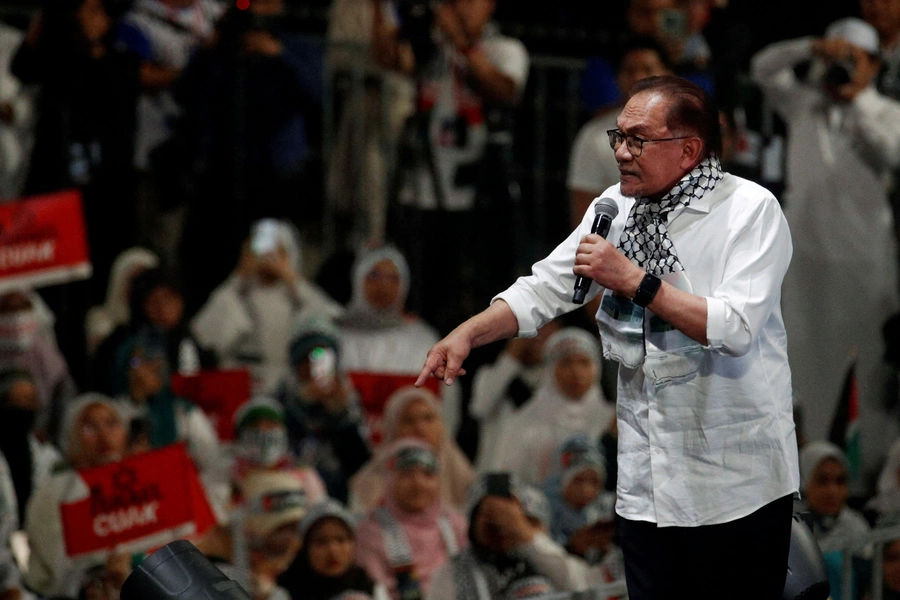Anwar Struggles With Foreign Policy—and at Home

More on:
After decades in opposition and time in jail, long-time political reformist and advocate of religious moderation Anwar Ibrahim became prime minister in late 2022, seemingly ushering in a new era in Malaysian domestic and foreign policy. As prime minister, Anwar would begin to address some of the challenges hindering Malayia’s economy and clean up the vast corruption that had plagued Malaysian politics for decades. On foreign policy, Anwar, who had long enjoyed close relations with the United States and Europe but also had maintained important contacts in China, seemed poised to strike a delicate balance between the two giants. Perhaps, with his smooth style, compared to his recent predecessors as prime minister, he could get Beijing to take Malaysia’s South China Sea claims more seriously.
Alas, Anwar and his administration have largely failed in both foreign and domestic policy. His bold claims to attract investment and make economic reforms to propel Malaysia into the 30 biggest economies in the world in a decade seem increasingly unlikely. And while his foreign policy has increasingly alienated the United States, partly due to Anwar staking out the harshest position in Southeast Asia on the Gaza war, he also has not stood up for Malaysia’s interests with China and does not seem to be poised to attract a flood of Chinese investment either. For more on Anwar’s failures, see my new World Politics Review article.
More on:
 Online Store
Online Store
